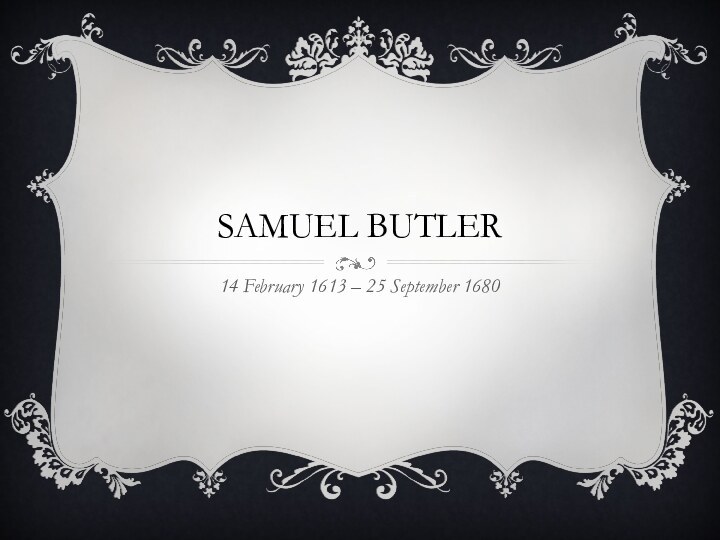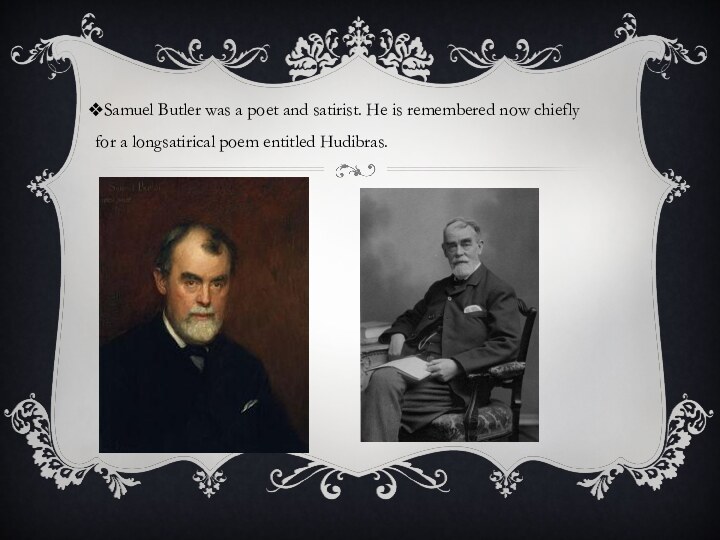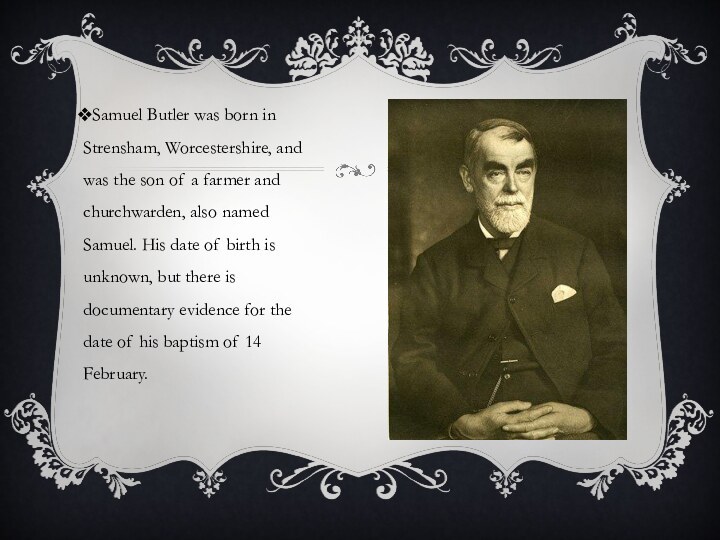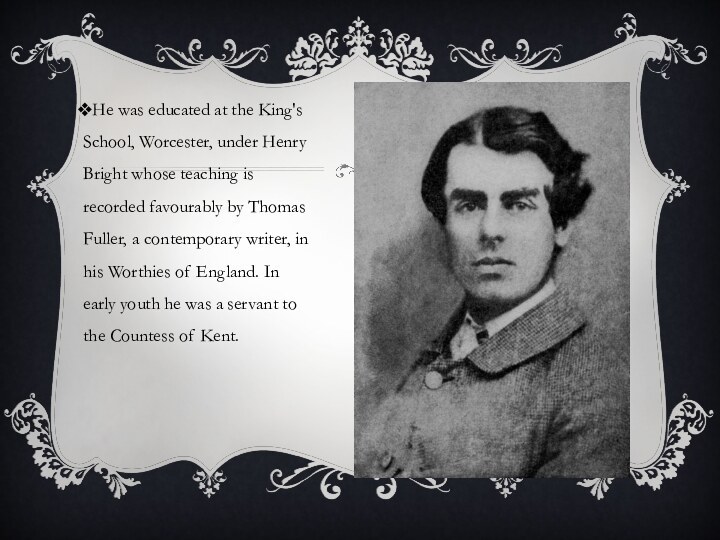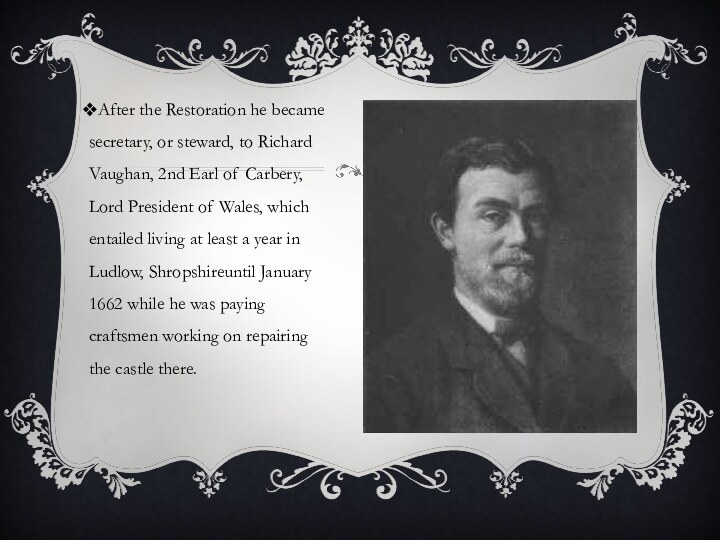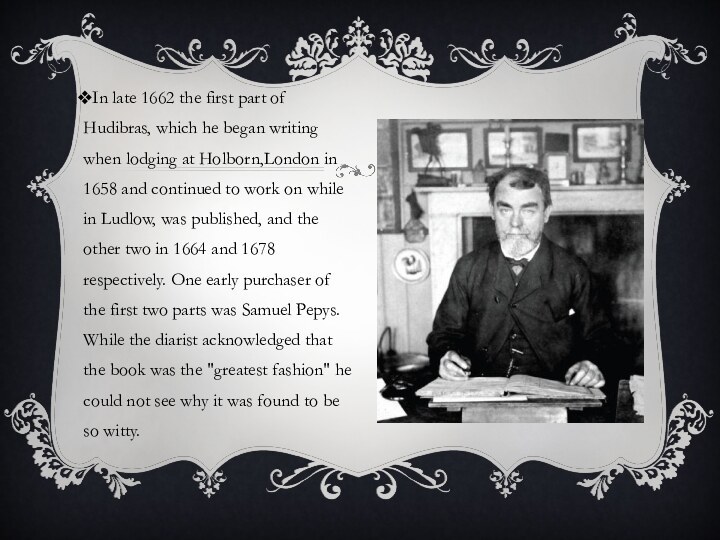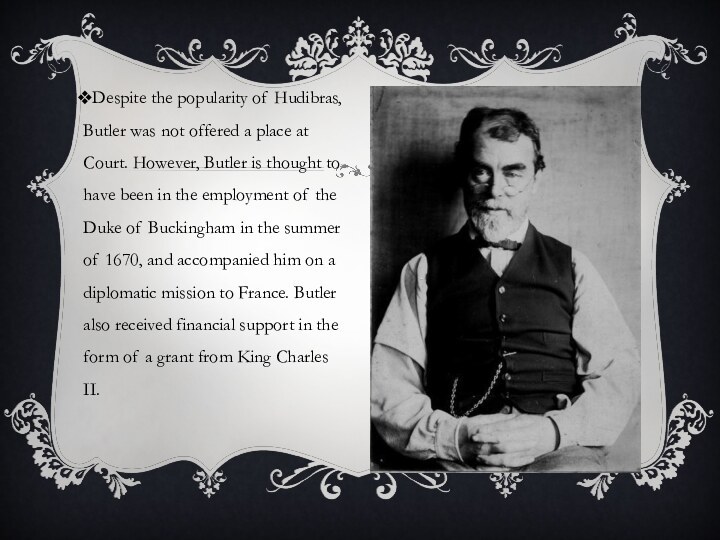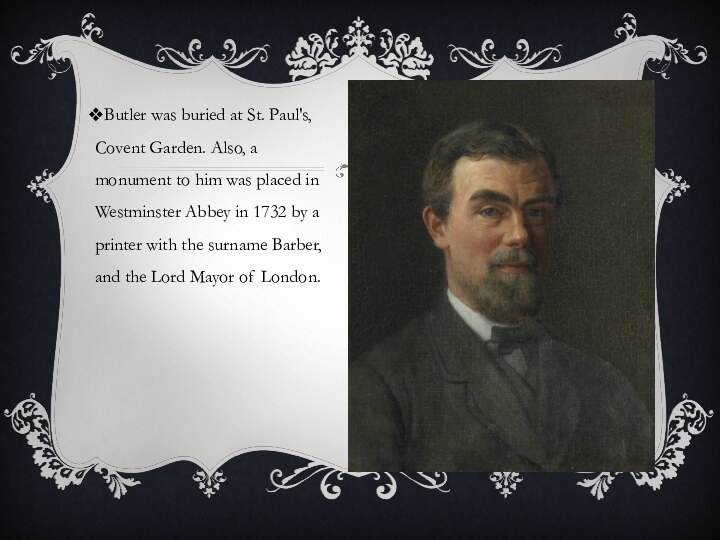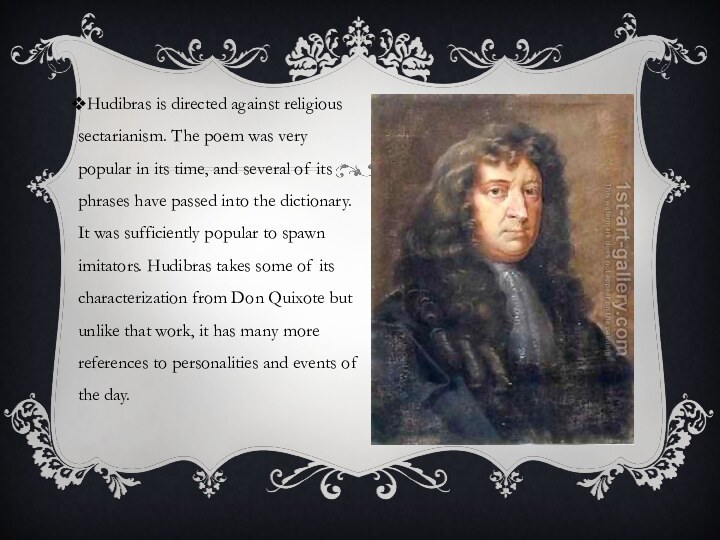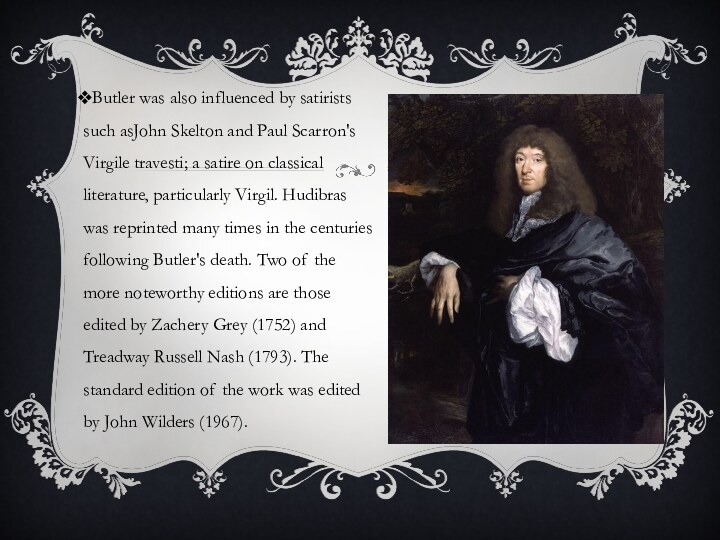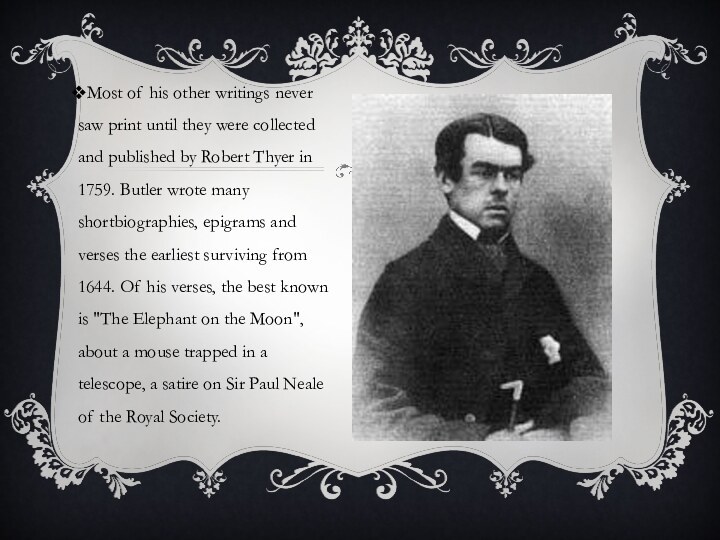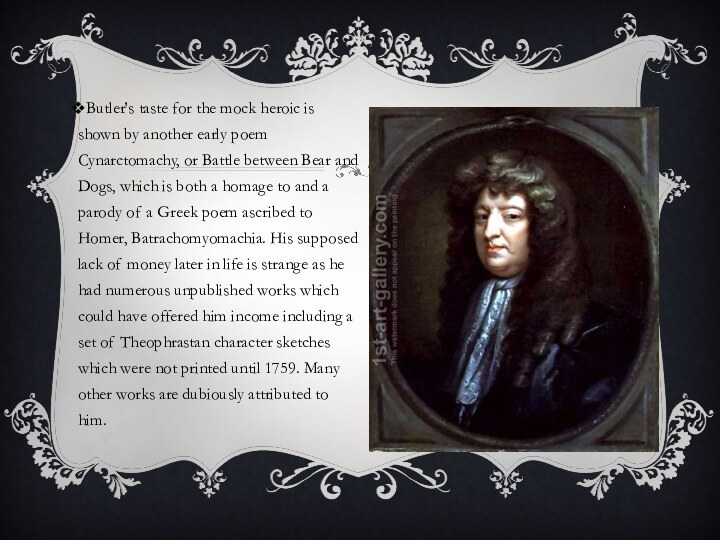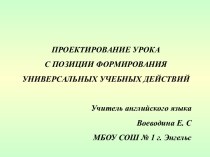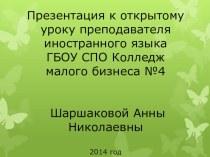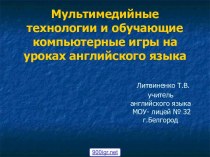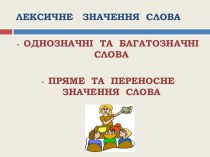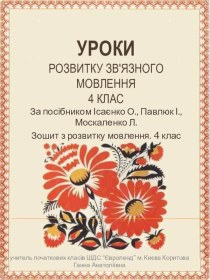Слайд 2
Samuel Butler was a poet and satirist. He
is remembered now chiefly for a longsatirical poem entitled
Hudibras.
Слайд 3
Samuel Butler was born in Strensham, Worcestershire, and
was the son of a farmer and churchwarden, also
named Samuel. His date of birth is unknown, but there is documentary evidence for the date of his baptism of 14 February.
Слайд 4
He was educated at the King's School, Worcester,
under Henry Bright whose teaching is recorded favourably by
Thomas Fuller, a contemporary writer, in his Worthies of England. In early youth he was a servant to the Countess of Kent.
Слайд 5
After the Restoration he became secretary, or steward,
to Richard Vaughan, 2nd Earl of Carbery, Lord President
of Wales, which entailed living at least a year in Ludlow, Shropshireuntil January 1662 while he was paying craftsmen working on repairing the castle there.
Слайд 6
In late 1662 the first part of Hudibras,
which he began writing when lodging at Holborn,London in
1658 and continued to work on while in Ludlow, was published, and the other two in 1664 and 1678 respectively. One early purchaser of the first two parts was Samuel Pepys. While the diarist acknowledged that the book was the "greatest fashion" he could not see why it was found to be so witty.
Слайд 7
Despite the popularity of Hudibras, Butler was not
offered a place at Court. However, Butler is thought
to have been in the employment of the Duke of Buckingham in the summer of 1670, and accompanied him on a diplomatic mission to France. Butler also received financial support in the form of a grant from King Charles II.
Слайд 8
Butler was buried at St. Paul's, Covent Garden.
Also, a monument to him was placed in Westminster
Abbey in 1732 by a printer with the surname Barber, and the Lord Mayor of London.
Слайд 9
Hudibras is directed against religious sectarianism. The poem
was very popular in its time, and several of
its phrases have passed into the dictionary. It was sufficiently popular to spawn imitators. Hudibras takes some of its characterization from Don Quixote but unlike that work, it has many more references to personalities and events of the day.
Слайд 10
Butler was also influenced by satirists such asJohn
Skelton and Paul Scarron's Virgile travesti; a satire on
classical literature, particularly Virgil. Hudibras was reprinted many times in the centuries following Butler's death. Two of the more noteworthy editions are those edited by Zachery Grey (1752) and Treadway Russell Nash (1793). The standard edition of the work was edited by John Wilders (1967).
Слайд 11
Most of his other writings never saw print
until they were collected and published by Robert Thyer
in 1759. Butler wrote many shortbiographies, epigrams and verses the earliest surviving from 1644. Of his verses, the best known is "The Elephant on the Moon", about a mouse trapped in a telescope, a satire on Sir Paul Neale of the Royal Society.
